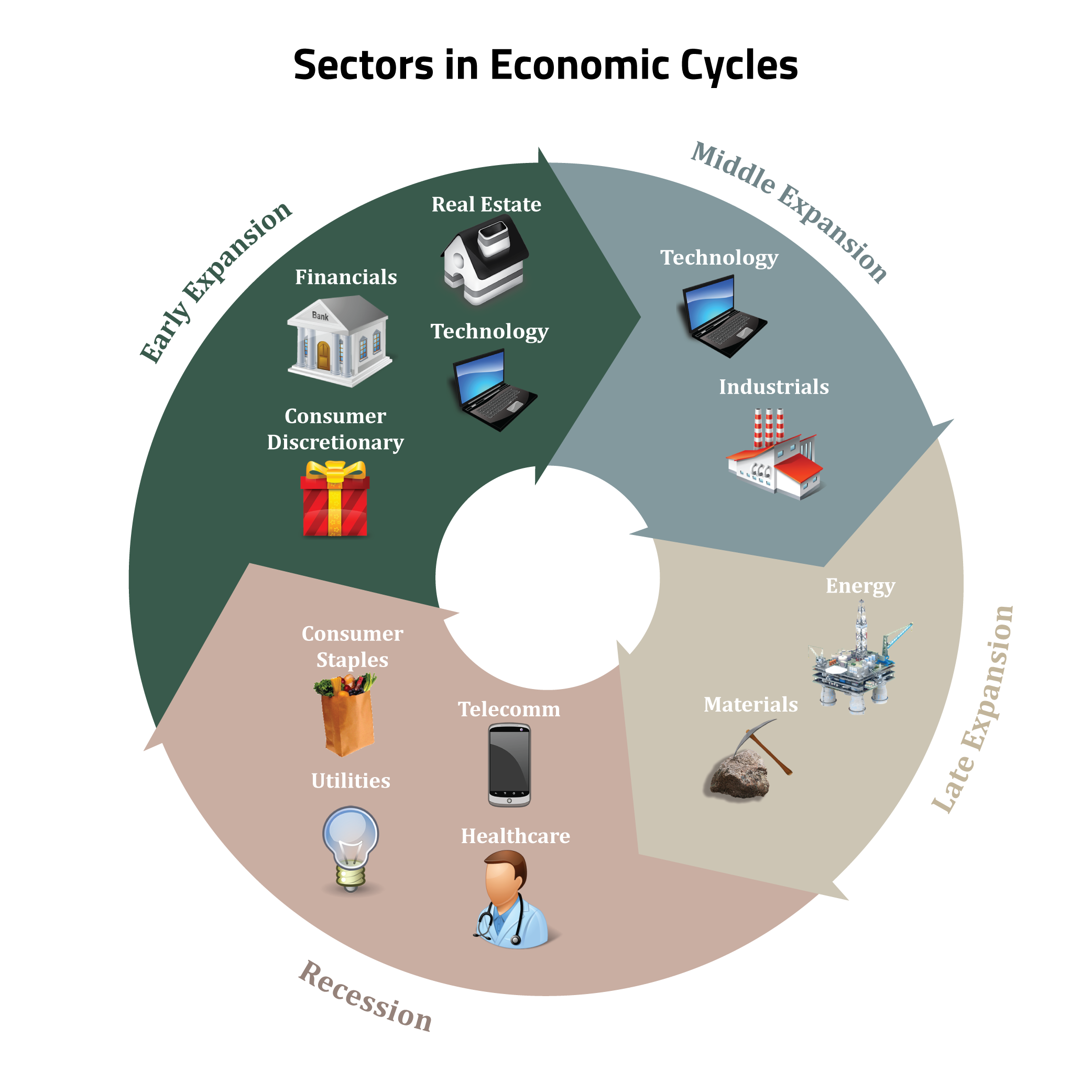When you hear the word "sector," what exactly comes to mind? Is it just another fancy term thrown around in business meetings, or does it have deeper implications that affect your daily life? If you're scratching your head, don't sweat it—we're here to break it down for you. Think of sectors as the building blocks of the economy, each one playing a unique role in shaping the world we live in. Whether you're an entrepreneur, investor, or simply someone curious about how industries work, understanding sectors is key to navigating the modern economic landscape.
Let's face it, the term "sector" can sound intimidating, but it doesn't have to be. Picture it like this: the economy is like a giant puzzle, and each sector is a piece that fits together to create the bigger picture. From technology to healthcare, every sector contributes something special to the economy. So, why does this matter to you? Well, whether you're deciding where to invest your money or exploring career opportunities, knowing the ins and outs of sectors can give you a serious edge.
Now, before we dive deep into the nitty-gritty, let's clear the air. This isn't just another boring article filled with jargon. We're here to make understanding sectors as easy as pie. By the time you finish reading, you'll not only know what sectors are but also how they impact your life. Ready to roll? Let's get started!
- Jennifer Syme The Life Legacy And Untold Story
- Bollyflix Africa Your Ultimate Gateway To Bollywood Entertainment
What Exactly Is a Sector?
Alright, let's start from the basics. A sector is basically a group of companies or industries that share similar characteristics and operate within the same space. Think of it like different neighborhoods in a city—each neighborhood has its own vibe, culture, and rules. Similarly, sectors have their own dynamics, trends, and challenges. For example, the tech sector is all about innovation and cutting-edge solutions, while the agriculture sector focuses on farming and food production.
Here's the kicker: sectors aren't just random categories. They're carefully organized based on the type of goods or services they produce. This organization helps economists, investors, and policymakers make informed decisions. Whether you're tracking stock performance or analyzing market trends, understanding sectors is like having a secret decoder ring for the economy.
Why Are Sectors Important?
Now that we know what sectors are, let's talk about why they matter. Sectors are the backbone of the economy, influencing everything from job creation to global trade. Here's a quick breakdown:
- Jennifer Syme The Forgotten Star Who Left An Indelible Mark
- Open Sexy Film The Bold World Of Cinematic Exploration
- Job Opportunities: Each sector offers unique career paths and skill requirements. Whether you're into coding or carpentry, there's a sector out there that suits your interests.
- Investment Potential: Investors use sectors to diversify their portfolios and mitigate risks. By spreading investments across different sectors, they can protect themselves from market fluctuations.
- Economic Growth: The performance of sectors directly impacts GDP and overall economic health. When sectors thrive, so does the economy.
So, whether you're a job seeker, investor, or just someone interested in how the economy works, sectors play a crucial role in shaping your world.
Types of Sectors: Breaking It Down
Not all sectors are created equal. In fact, the global economy is divided into several broad categories, each with its own set of sub-sectors. Let's take a closer look at some of the major players:
1. Primary Sector
The primary sector is all about raw materials. Think farming, fishing, mining, and forestry. These industries focus on extracting natural resources from the earth. Without the primary sector, we wouldn't have the basic building blocks needed for other sectors to function. For example, farmers grow crops that eventually become the food on our plates.
2. Secondary Sector
Next up is the secondary sector, which is all about manufacturing and production. This is where raw materials are transformed into finished goods. From building cars to producing electronics, the secondary sector is where the magic happens. It's also a major contributor to employment and economic growth.
3. Tertiary Sector
The tertiary sector, also known as the service sector, is all about providing services rather than physical products. This includes industries like healthcare, education, finance, and retail. As economies evolve, the service sector often becomes the largest contributor to GDP. In fact, in many developed countries, it accounts for more than 70% of the economy.
4. Quaternary Sector
Here's where things get interesting. The quaternary sector focuses on knowledge-based activities, such as research, development, and information technology. With the rise of the digital age, this sector has become increasingly important. Think about all the tech startups and innovation hubs driving the global economy.
5. Quinary Sector
Finally, we have the quinary sector, which includes top-level decision-makers and influencers. This includes government officials, CEOs, and other high-level executives. While it's not as large as the other sectors, its impact on policy-making and strategic planning cannot be underestimated.
How Sectors Impact the Economy
Now that we've covered the different types of sectors, let's explore how they influence the economy. Sectors don't operate in isolation—they're interconnected in complex ways. Here's how:
Economic Interdependence
Sectors rely on each other to function effectively. For example, the agriculture sector provides raw materials for the food processing industry, which in turn supplies grocery stores. This interdependence creates a web of relationships that drive economic activity. When one sector thrives, others benefit as well.
Global Trade
Sectors also play a crucial role in global trade. Countries specialize in certain sectors based on their natural resources, labor force, and technological capabilities. For instance, countries with abundant oil reserves focus on the energy sector, while others may prioritize technology or finance. This specialization leads to increased efficiency and competitiveness on the global stage.
Innovation and Growth
Innovation is the lifeblood of sectors. As industries evolve, they introduce new technologies and processes that drive growth. Think about how the tech sector has transformed the way we live, work, and communicate. From smartphones to artificial intelligence, innovation in one sector can have ripple effects across the entire economy.
The Role of Sectors in Career Development
For those of you looking to advance your careers, understanding sectors is a game-changer. Each sector has its own set of skills, qualifications, and opportunities. Here's how sectors can impact your career:
Identifying Your Niche
Not sure which career path to pursue? Start by exploring different sectors. Whether you're passionate about healthcare, technology, or finance, there's a sector out there that aligns with your interests. By identifying your niche, you can focus your efforts on building the skills and experience needed to succeed.
Networking and Connections
Sectors are also great for building professional networks. Attend industry conferences, join sector-specific groups, and connect with like-minded professionals. These connections can open doors to new opportunities and help you stay updated on the latest trends.
Adapting to Change
The world of work is constantly evolving, and sectors are at the forefront of this change. By staying informed about sector trends, you can adapt to new challenges and seize emerging opportunities. Whether it's learning a new skill or pivoting to a different role, being flexible is key to long-term success.
Challenges Facing Sectors Today
While sectors offer countless opportunities, they also face a range of challenges. Here are some of the biggest issues impacting sectors today:
Climate Change
Climate change is affecting sectors across the board. From agriculture to energy, industries are being forced to adapt to changing weather patterns and resource availability. This has led to increased focus on sustainability and green technologies.
Technological Disruption
Advancements in technology are reshaping the way sectors operate. Automation, artificial intelligence, and machine learning are transforming industries, creating both opportunities and challenges. While some jobs are being replaced by machines, new roles are emerging that require specialized skills.
Global Economic Uncertainty
With geopolitical tensions and economic instability on the rise, sectors are facing increased uncertainty. This has led to shifts in trade policies, supply chain disruptions, and fluctuations in demand. Navigating these challenges requires strategic planning and adaptability.
Future Trends in Sectors
So, what does the future hold for sectors? Here are some trends to watch out for:
Sustainability and Green Technologies
As the world becomes more environmentally conscious, sectors are prioritizing sustainability. From renewable energy to eco-friendly products, companies are investing in green technologies to reduce their carbon footprint.
Digitization and Automation
The digital revolution is transforming sectors in unprecedented ways. Automation is streamlining processes, while big data and analytics are providing valuable insights. This trend is expected to continue, with sectors increasingly relying on technology to drive efficiency and innovation.
Globalization and Collaboration
Despite challenges, globalization is still a major force shaping sectors. Companies are collaborating across borders to tap into new markets and share knowledge. This trend is likely to continue, with sectors becoming more interconnected and interdependent.
How to Stay Informed About Sectors
Staying up-to-date with sector developments is crucial for anyone looking to succeed in today's economy. Here are some tips:
- Follow Industry News: Subscribe to sector-specific publications and newsletters to stay informed about the latest trends and developments.
- Engage in Networking: Attend conferences, webinars, and industry events to connect with professionals and gain insights from experts.
- Explore Online Resources: Use platforms like LinkedIn, Twitter, and industry forums to access valuable information and engage with sector leaders.
By staying informed, you can position yourself for success in an ever-changing economic landscape.
Conclusion: Your Sector Journey Starts Here
There you have it—a comprehensive guide to understanding sectors. From their role in the economy to their impact on careers, sectors are a vital part of our world. By familiarizing yourself with the different types of sectors and their dynamics, you can make informed decisions about your future.
So, what's next? Whether you're an investor looking to diversify your portfolio or a job seeker exploring new opportunities, take the first step today. Dive deeper into the sectors that interest you, stay informed about trends, and adapt to changes. Remember, knowledge is power, and understanding sectors can give you a serious edge in today's economy.
Before you go, we'd love to hear your thoughts. Do you have a favorite sector? Are there any trends you're excited about? Drop a comment below and let's keep the conversation going!
Table of Contents
- 1900 Rugrat Age The Ultimate Dive Into Rugrats Timeless Charm
- Jameliz Smith Naked The Truth Behind The Headlines


